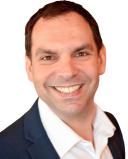Compulsive Behaviors
A Broader Picture of Sexual Compulsivity
Compulsive sexual behaviours from another lens.
Posted August 21, 2024 Reviewed by Lybi Ma
Key points
- The perspective of sexology is essential in understanding sexual compulsivity.
- The field of sexology challenges the notion of sexual behaviours and pornography watching being addictive.
- Sexology strongly opposes moral or religious values being imposed under the guise of evidence-based treatment.

Since its appearance in clinical discourse in the '80s, the concept of “sex addiction” has been a contentious one for decades. Many clinicians promote the “sex/porn addiction” formulations and narratives, while many others refute it. The “sex/porn addiction” narrative is filled with myths, contradictions, and disagreement; it is not surprising that the public and therapists are confused.
People who struggle with sexual behaviours describe it as out of control, something they don’t want to do but can’t stop doing, and something they do frequently despite the negative consequences. If you look at those symptoms, it is easy to understand why some therapists equate it to an addiction, and it makes sense that some people want to choose a “sex addiction” therapist because they are desperate for those sexual behaviours to stop.
However, one of the main issues about the “sex/porn addiction” textbooks, literature, and narratives is that they generally ignore the science of sexology. This body of literature has a primary lens of addiction theories, making what is known about addiction fit with the phenomenon of out-of-control sexual behaviours. Some studies have demonstrated that using a primary addiction lens to explain some behavioural problems may easily pathologise some normative behaviours, or overly pathologise into a disorder framework some behaviours that may be problematic but not disordered.
Indeed, with the primary lens of addiction, we can pretty much see any behaviours as addiction: shopping, exercising, eating cheese, using smartphones, and even milk tea. (None of these are scientifically endorsed as addiction). However, clinicians who are trained in eating disorders will make the difference between “comfort eating” and eating disorders. In the contentious field of “sex/porn addiction,” it is easy to inaccurately formulate a sexual behaviour with soothing effects (comforting) as a pseudo-diagnosis for a disorder. This is an important distinction because most people who struggle with their sexual behaviours will already feel an enormous amount of shame and guilt. Many people would feel "broken," so if a professional sticks a disorder label because they formulate the behavioural problem with the primary lens of addiction, they might unintentionally increase their clients’ shame and sense of "brokenness." It is problematic for a clinician to name a disorder when there isn’t one, or without considering that the behavioural problem could be explained otherwise, from a different lens.
A robust scientific field
The field of sexology is a robust scientific field that has been expanding exponentially. The field encompasses expertise in sexual medicine, sexual functioning, sexuality and erotic diversity, and sexual behaviours. It makes sense to consider the knowledge and data provided by this field when working with sexual compulsivity. When we move away from a primary addiction lens, and incorporate the field of sexology, we can see a different picture in formulating sexual behaviours that are out of control. The worldwide scientific community has not endorsed sexual behaviours and pornography watching as an addiction, despite numerous attempts to prove its existence. More research is being carried out in trying to formulate “sex/porn addiction” as a behavioural addiction, but, so far, the science of sexology makes it difficult for clinicians to accept the notion of behavioural addiction for sexual behaviours and pornography watching.
One of the other main issues with the “sex/porn addiction” literature and body of research is that it was done with very poor methodologies, and much of the literature and textbooks are strongly biased with heteronormative thinking and, unfortunately, with overt and covert religiosity. Because of its problematic theoretical foundations, the DSM-5 has not endorsed “sex/porn addiction” as a disorder. The only agreed diagnosis that clinicians currently have is “compulsive sexual behaviour disorder (CSBD)” in the ICD-11 from the World Health Organization. The diagnostic criteria are strict, thankfully, which means that most people who have sexual behaviour struggles will not meet the full criteria for the disorder (they may have sexual behaviour problems, but not a disorder – just like “comfort eating” versus eating disorder as mentioned earlier). Yet, there is some literature revealing that the ICD-11 CSBD diagnosis is being misused by some clinicians who are over-pathologising clients.
An article written by some of the best international sexual medicine researchers in sexual compulsivity expresses their concern about attitudes hostile to sexual pleasure, pathologising of non-heteronormative sexual behaviours, and high sexual desire. The article notes that what is known about sexual compulsivity is mostly based on research on heterosexual men in Western countries. It means that if treatments based on theories from these limited cohorts are applied to other populations, such as the LGBTQ+ populations, they may be delivered with unchecked heteronormative and mono-normative assumptions and therefore be problematic for LGBTQ+ people. Might we have a different clinical picture if we employed a broader lens with varied cultural contexts, and diverse sexuality and erotic diversities?
According to the science of sexology, one of the (many) reasons why sex and pornography watching are not considered addictive is because of the natural refractoriness, which means that after orgasm, there is a natural and physiological “stopping.” This is why we cannot compare it with other problematic behaviours such as gambling, and this is why having contemporary knowledge in sexology is crucial when working with people who struggle with sexual compulsivity.
Not just nomenclature
The criticism about “sex/porn addiction” is not so much a nomenclature issue or a disagreement about what term to use. It is actually about what kind of treatment is encouraged when clinicians work with a primary addiction lens. For example, “sex/porn addiction” experts say that 12-step programmes are an “essential addition to therapy.” Yet, there is very poor evidence that those abstinence-based programmes are efficient, and there is a significant discourse on how those programmes can be harmful. Some other abstinence-based programmes such as NoFap are also routinely recommended by “sex/porn addiction” therapists despite strong evidence that they are harmful groups. Should we care what we call it? Addiction or not? Yes, I believe we should care, because the diagnostic term of "addiction," when it is related to sexual behaviours and pornography watching, comes with treatments that are not evidence-based and may make things worse for clients.
The field of sexology stated: “We strongly oppose approaches that seek to impose the professional’s moral or religious values on patients under the guise of evidence-based treatment.” Unfortunately, this statement is necessary and relevant because much of the literature on “sex/porn addiction” confuses personal and moral values with clinical thinking—particularly in the area of pornography watching, kink, erotic diversity, and ethical non-monogamy.
According to sexual medicine, a sex-positive lens should be the primary perspective in working with clients who struggle with compulsive sexual behaviours, and the treatment should include a trans-theoretical and multimodal approach, not an addiction one. With a primary lens of sexology and thorough knowledge of sexual and erotic diversities, the clinician can assess sexual behaviours and pornography viewing without over-pathologising clients. The good news is that there are more and more specialist therapists who offer genuinely sex-positive therapy for compulsive sexual behaviours—away from the reductive concept of “sex/porn addiction.”
References
Peer Briken, Beáta Bőthe, Joana Carvalho, Eli Coleman, Annamaria Giraldi, Shane W Kraus, Michał Lew-Starowicz, James G Pfaus, Assessment and treatment of compulsive sexual behavior disorder: a sexual medicine perspective, Sexual Medicine Reviews, Volume 12, Issue 3, July 2024, Pages 355–370, https://doi.org/10.1093/sxmrev/qeae014
Andersson, C., Carlström, C., Amroussia, N., & Lindroth, M. (2024). Using Twelve-Step Treatment for Sex Addiction and Compulsive Sexual Behaviour (Disorder): A Systematic Review of the Literature. Sexual Health & Compulsivity, 31(2), 170–188. https://doi.org/10.1080/26929953.2024.2339208
Neves, S. (2021). The religious disguise in “sex addiction” therapy. Sexual and Relationship Therapy, 37(3), 299–313. https://doi.org/10.1080/14681994.2021.2008344
Prause, N., & Binnie, J. (2023). Iatrogenic effects of Reboot/NoFap on public health: A preregistered survey study. Sexualities, 0(0). https://doi.org/10.1177/13634607231157070




